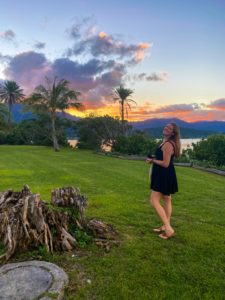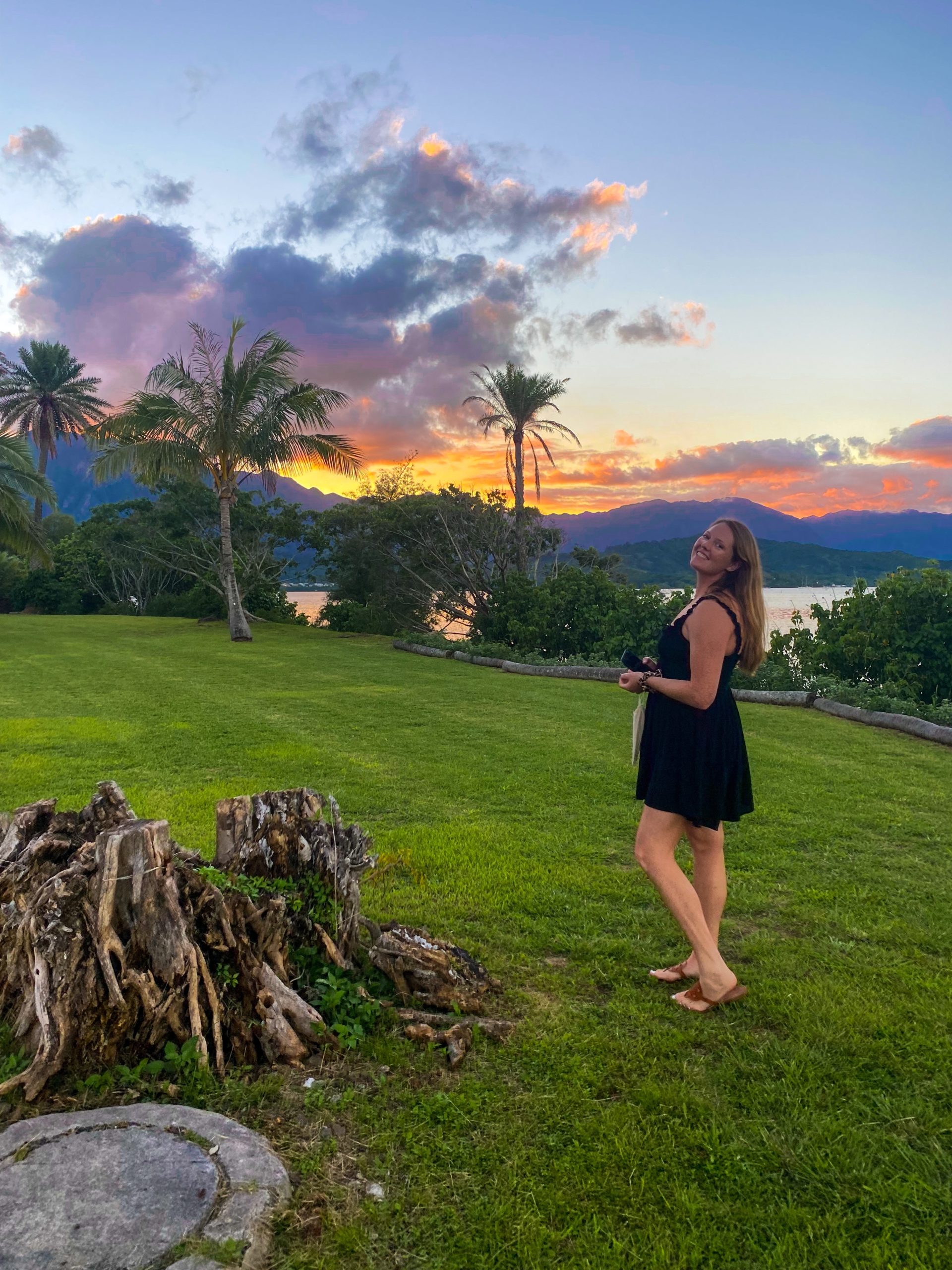 Loren Ayres will be taking over our Instagram account on Wednesday, March 2, to share her experience in the College of Science Three Seas Program. Follow along for an inside look at her time in Hawaii!
Loren Ayres will be taking over our Instagram account on Wednesday, March 2, to share her experience in the College of Science Three Seas Program. Follow along for an inside look at her time in Hawaii!
Look back at her takeover here!
What is your major and year of graduation?
I will be graduating from Northeastern University with a master of science in marine biology in December 2022!
Why did you decide to enroll at the College of Science at Northeastern?
The Three Seas Program offers fieldwork and an experiential learning process I couldn’t find anywhere else, but I fell in love with the Boston campus as a junior in college while touring with my younger brother. I felt so at home in Boston and Northeastern that I decided to look into graduate programs here and found this perfect program for me!
Tell us about your previous undergraduate studies and how they led you here.
I got my bachelor’s in environmental science from Florida State University in May 2020 and took a gap year due to the Covid-19 pandemic before coming to Northeastern. I have always wanted to focus on marine biology eventually but decided to get a more general environmental degree as an undergrad before narrowing down for graduate school. I had a wide variety of experiences and internships during my four undergraduate years that only affirmed my passion for marine biology.
Tell us about the Three Seas Program.
The Three Seas Program is an immersive and field-intensive program in marine biology focusing on research, applied marine sustainability, conservation, and restoration. We travel to three unique locations to learn about the various ecosystems. We do a lot of scientific SCUBA diving as part of our lessons, which I have found highly influential to absorbing class information! Students experience Nahant, Massachusetts, during the fall semester at the Northeastern Marine Science Center. The spring semester splits students between the Hawaiian Insitute of Marine Biology on O’ahu and Friday Harbor Labs in Washington. The program culminates in a six-month internship and thesis, and we all return in December to present our work. It’s a lot of work and learning in a short time, but it has been so worth it!
Why did you decide to enroll in the Three Seas Program and pursue a master’s in biology?
I grew up on the coast of southeastern Florida, so I’ve been around and had a passion for the ocean for as long as I can remember. I’ve always been happiest on the water, and as I grew up and learned more about the ocean, it became clear that I wanted to work in the marine field forever. In the final year of getting my undergraduate degree, I knew I wanted to get a master’s to be more competitive in the marine biology field. The Three Seas Program offers experiences unlike any other graduate program I researched and has an extensive alumni network that provides connections all over the globe. Between the traveling, the courses, and the internship component, I knew this was the perfect program for me!
Tell us about your current experience in Hawaii. What are you doing there?
In Hawaii, we have a much different class schedule than most schools. We take four classes for two weeks each, with one day off for every three or four days of courses. For our first two classes (biology of corals and biology of fishes), we were diving almost every day in addition to lectures. During our third class, ocean and coastal processes, we are in the water a little less but experiencing more labs and off-site field trips, learning about what made the Hawaiian Islands what they are. It’s been amazing so far – the small island we live on is stunning, and we are seeing so much of Oahu both during field trips and on our off days!
How long are you there for? What does a typical day look like?
We arrived in Hawaii right after the New Year and are here for two months. One of the best parts of this program is that every day is a little different! Most days, we are in class from around 9 A.M. to 4 P.M., but that changes based on the day’s activities. All 16 girls live in one house, so we spend the day in class and the evening doing homework, reading, playing games, or just hanging out.
What’s next after this?
We are going to Friday Harbor Labs in Washington State in mid-March, where we will finish our coursework before going our separate ways for a six-month research internship! We are all going to be scattered across the world, gaining real-world experience before coming back together to present our findings and submit our manuscripts for review in December.
What do you hope to do post-graduation?
I want to work in the marine mammal rescue and rehabilitation field, preferably with sea lions. I want to be in the industry as much as possible and be actively helping keystone species. My internship is with Channel Islands Marine and Wildlife Institution, where I will be doing precisely that while writing a scientific manuscript analyzing years of California sea lion stranding and mortality data. Fingers crossed that my post-internship career will be similar!
How has this experience enhanced your marine biology knowledge and skills?
The combination of fieldwork and coursework has helped me grow exponentially. We are not only learning about fish, corals, and field skills such as transects in lectures – we are practicing and applying these skills in real-time. I’ve also learned so much about scientific writing and reading in such a short time, a skill that is essential to a career in this field.
What is your favorite part of the program and why?
My favorite part of this program is the experiences I’ve had learning while traveling and the friendships formed. If I hadn’t chosen Three Seas, I never would have had the chance to live in Boston, Hawaii, Washington, and California all in one year. I went to a huge school for my undergraduate degree, so it’s been refreshing and fun spending so much time with the same cohort of 18 people who are all interested in and learning the same things.
Do you have any advice for prospective students hoping to break into the marine biology field?
Get as much experience as you can! Much of my internship experience was not directly related to the marine biology field, but environmentally-related skills add up. Also, many internships are unpaid, which may not be viable for everyone (including myself), so make sure to also pull important lessons and characteristics from your outside life into your resume when trying to break into the field. For example, I used traits I developed from both my background in athletics and years of customer service jobs to highlight why I was deserving of a position in the program and other jobs/internships. There are more important things than just industry experience!

